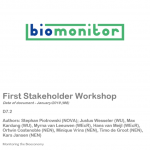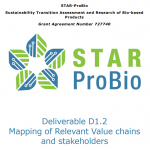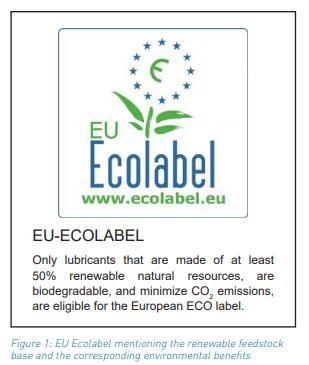D7.2 – First Stakeholder Workshop
The first stakeholder workshop of the BioMonitor Project took place on October 23rd, 2018, at the CEN-CENELEC Meeting Centre Brussels, from 9:00 to 12:30. 31 participants attended the workshop, of which 19 were external stakeholders and 12 were BioMonitor partners. From the external stakeholders, 7 came from research organisations, 6 from industry and industry associations, 4 from policy institutions and 2 from statistical institutions.
At the workshop, the project was presented by the coordinator Prof. Justus Wesseler (WUR), followed by a presentation of Dr. Stephan Piotrowski (NOVA) on indicators for the monitoring of the bioeconomy and by Dr. Hans van Meijl (WEcR) on the BioMonitor Model Toolbox. These presentations served as a background for the following group discussions which had the objective of receiving input from the stakeholders regarding the objectives, criteria and indicators that should be included in the monitoring system of the bioeconomy to be developed.
After this group discussion, a presentation by Ortwin Costenoble (NEN) on the BioMonitor trainings followed. Also on this part, group discussions were organised with the objective of identifying training needs by data providers (industries, governmental organisations, researchers), data managers (statistical offices), and data users (customs, (inter-)national policy makers, industries).
In the following two sections, both discussion parts are summarized and conclusions are drawn. All presentations can be found as attachments to this report.




